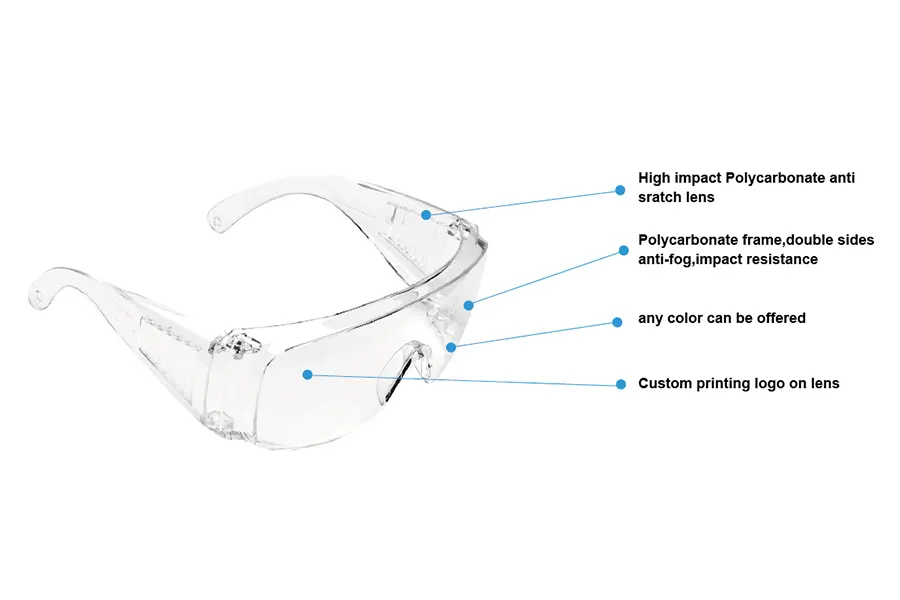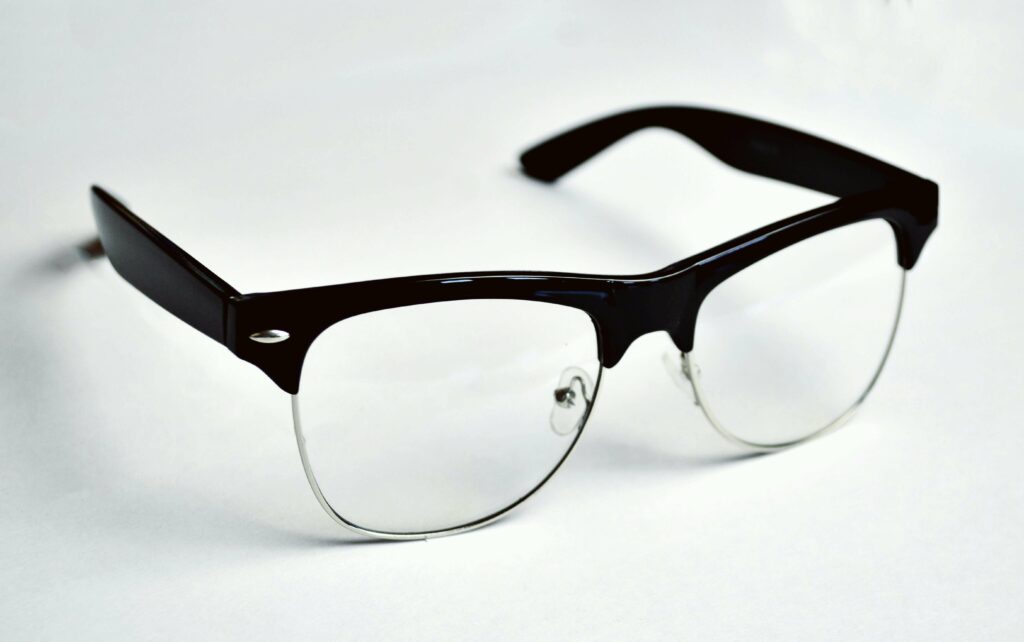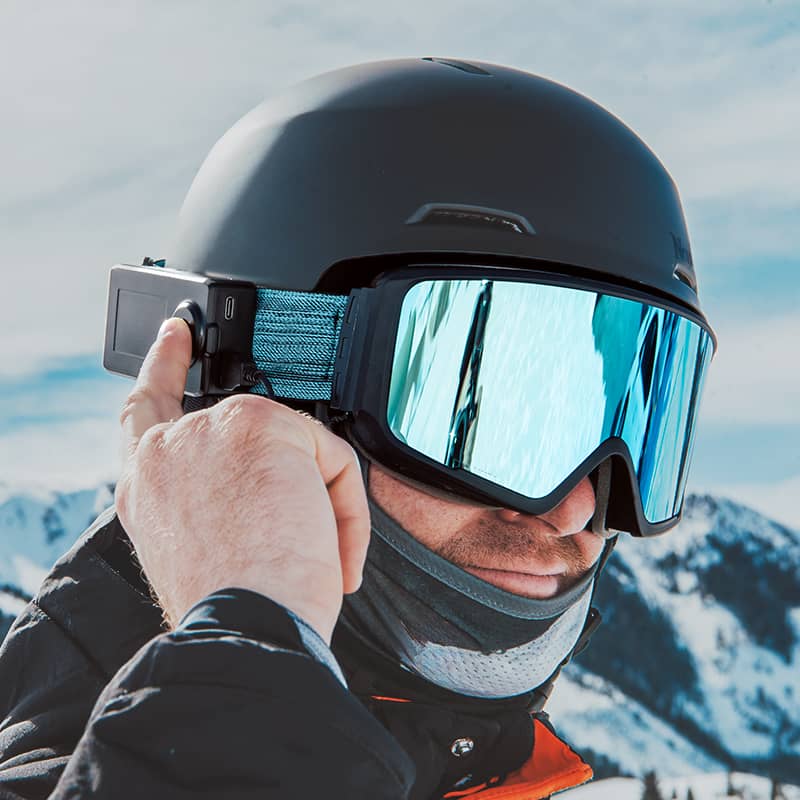Ever wondered what the difference is between safety glasses and regular glasses? Well, you’re in the right place! Whether you’re a DIY enthusiast or just curious, understanding the distinction can save your eyes from potential hazards. Let’s dive in!
What Are Safety Glasses?

Definition
So, what are safety glasses? Simply put, safety glasses are designed to protect your eyes from hazards like flying debris, chemicals, or intense light. They’re your go-to when you need extra protection beyond what regular glasses offer.
Characteristics
Safety glasses have some unique features. They’re usually made of robust materials like polycarbonate, which is not only durable but also impact-resistant. Think of them as the superhero version of regular glasses, ready to take on whatever comes their way.
What Are Regular Glasses?

Definition
On the flip side, regular glasses are all about helping you see clearly. They correct vision issues like nearsightedness or farsightedness. But when it comes to protection? They’re not exactly the front-liners.
Characteristics
Regular glasses are designed with comfort and style in mind. They can be made from a variety of materials, including glass and plastic lenses. While they might look stylish, they’re not built to withstand heavy impacts or chemical splashes.
Safety Glasses vs. Regular Glasses Main Differences
The main difference between safety glasses and regular glasses lies in their purpose and construction.
Safety glasses are specifically designed to protect your eyes from hazards like flying debris, chemicals, and intense light. They are made from robust materials such as polycarbonate, which is highly impact-resistant and durable. Safety glasses often have features like side shields to provide additional protection from all angles.
On the other hand, regular glasses are primarily intended to correct vision problems like nearsightedness or farsightedness. They are made from materials like plastic or glass lenses, which provide clear vision but offer minimal protection against physical impacts or chemical exposure. Regular glasses focus on comfort and style, making them suitable for everyday wear but not for hazardous environments.
In summary, safety glasses prioritize protection and durability, while regular glasses emphasize vision correction and comfort.
Comparison of Safety Glasses and Regular Glasses
Let’s take a closer look at the key differences between safety and regular glasses in terms of protection levels, lens materials, and overall design.

Protection Levels
When it comes to protection, safety glasses win hands down. They’re engineered to handle impacts, chemical exposure, and more. Regular glasses? Not so much. They might shield your eyes from dust, but that’s about it.
Lens Materials
What are safety glasses made of? Typically, tough materials like polycarbonate or Trivex, known for their high impact resistance. Regular glasses often use plastic or glass lenses, which are great for clarity but not for protection.
Comfort and Fit
Comfort is key for any eyewear. Safety glasses are designed for snug fits to ensure they stay put during intense activities. Regular glasses focus more on lightweight materials and stylish frames, making them more comfortable for all-day wear.
Advantages of Safety Glasses
Enhanced Protection
The biggest perk? Protection. Safety glasses are like a force field for your eyes, keeping out harmful debris, UV rays, and chemicals. They’re the ultimate guardian for your vision.
Versatility
Safety glasses are incredibly versatile. They come in various designs to suit different environments and needs, from sports to industrial work. Plus, you can often get them customized to fit your specific requirements.
Disadvantages of Safety Glasses
Potential Discomfort
Safety glasses can sometimes be uncomfortable, especially if worn for long periods. They might feel heavier or tighter compared to regular glasses, which can be a pain.
Aesthetic Considerations
Let’s face it, safety glasses aren’t winning any fashion awards. They’re more about function than style, so they might not look as sleek as your favorite pair of designer specs.
Advantages of Regular Glasses
Visual Clarity
Regular glasses excel in providing clear vision. With prescription lenses tailored to your eyes, you’ll see the world in sharp detail. Plus, they’re available in countless styles to match your personal taste.
Comfort
Comfort is a big win for regular glasses. They’re designed to be worn all day without causing discomfort. Lightweight frames and various styles ensure they fit well and look good.
Disadvantages of Regular Glasses
Limited Protection
Regular glasses fall short in the protection department. They’re not built to withstand impacts or chemical exposure, making them a poor choice for hazardous environments.
Fragility
Regular glasses can be pretty fragile. The frames and lenses can break easily if not handled with care, which can be a hassle if you’re active or accident-prone.
Specialized Safety Glasses

Prescription Safety Glasses
If you need vision correction and protection, prescription safety glasses are your best bet. They combine the best of both worlds, offering clear vision and robust protection.
Safety Goggles
For even more protection, safety goggles are the way to go. They provide a seal around your eyes, offering superior defense against hazards, making them perfect for extreme conditions.
How to Choose the Right Eyewear?
Assessing Your Needs
When picking eyewear, consider your needs. Do you need protection for a hazardous job or just something for everyday vision correction? Your specific requirements will guide your choice.
Fit and Comfort
Make sure your glasses fit well and feel comfortable. Whether you’re wearing them for a few minutes or all day, they should sit snugly without causing discomfort. Besides, buy from a reliable goggles manufacturer or brand.
Conclusion
In the end, the choice between safety glasses and regular glasses boils down to your needs. Safety glasses offer unparalleled protection for hazardous environments, while regular glasses provide clear vision and comfort for everyday use. Choose wisely, and keep your eyes safe!
FAQs on Safety Glasses
- What are safety glasses? Safety glasses are protective eyewear designed to shield your eyes from hazards like flying debris, chemicals, and intense light.
- What are safety glasses used for? They are used in various settings, including workplaces, recreational activities, and DIY projects, to protect against potential eye injuries.
- What are safety glasses made of? Safety glasses are typically made of durable materials like polycarbonate or Trivex, known for their high impact resistance.
- Can I get prescription safety glasses? Yes, you can get safety glasses with prescription lenses, combining vision correction with robust eye protection.
- Are safety glasses comfortable to wear? While they might not be as comfortable as regular glasses, many safety glasses are designed with ergonomics in mind to ensure a secure and relatively comfortable fit.


25年-香港展邀请函(横屏-英文版)-1024x358.jpg)

